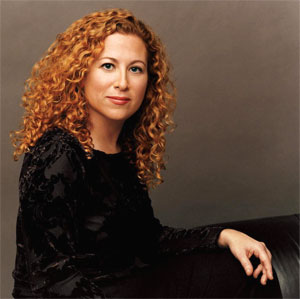
Not that Picoult cares much anymore. “I set out wanting to be a commercial fiction author, which means you don’t get any literary clout. I will never be thought of in the same way as someone like Joyce Carol Oates, though I’m more prolific* and probably read by more people,’ she says. ‘I tell my publicist not to send me the New York Times, which if they do write about me only do so in order to be snide. But the best revenge is when I end up top of their bestseller list. Which happens all the time.”
More to the point is why this happened and how Picoult’s success has now really opened the door for other thoughtfully commercial women’s fiction (think of the recent NYT bestselling success of Laura Lippman‘s WHAT THE DEAD KNOW) to be successful. Ultimately it comes down to stories that provoke discussion and empathy. “Book clubs need books they can talk about,” Picoult says simply. “Not just books that are fluffy, with happy endings.” Joel Rickett, deputy editor of The Bookseller, agrees. “Women in book clubs relate to her characters. They can ask themselves: what would I do in the same situation?” An irresistible question answered every year by Picoult’s books, by and large.
*Okay, someone wasn’t counting up properly, considering just how prolific Oates is over the last 45-odd years.

artwork by Drew Johnson and Ray Snyder
But, Ron wants to know, does Rickett’s theory apply to Picoult’s current writing gig at DC Comics, as part of the Wonder Woman reboot? It does, the author tells USA Today pop culture blogger Whitney Matheson, as they discuss a scene in which a young college student, grateful at having been rescued from a mugger, praises the superheroine as a feminist icon:
“What’s important about that particular scene in the book,” Picoult says, “is that it comes immediately after Diana Prince is having a little pity party for herself on a park bench because she just doesn’t get it. She can’t figure out what she’s supposed to do to make things better. And I think that’s again something many women struggle with. When you think about how the word ‘wonder woman’ is used culturally today, it’s a label for the woman who’s jugggling career and family and private life. And even if they’re making it look easy, knowing it’s never easy. I think that’s something I wanted to tap into when writing the book as well.”
“Coming up with a story that makes Wonder Woman someone you can relate to, not just someone you can admire,” she adds, is not just crucial to her approach, but perhaps to the character’s enduring popularity as well.



